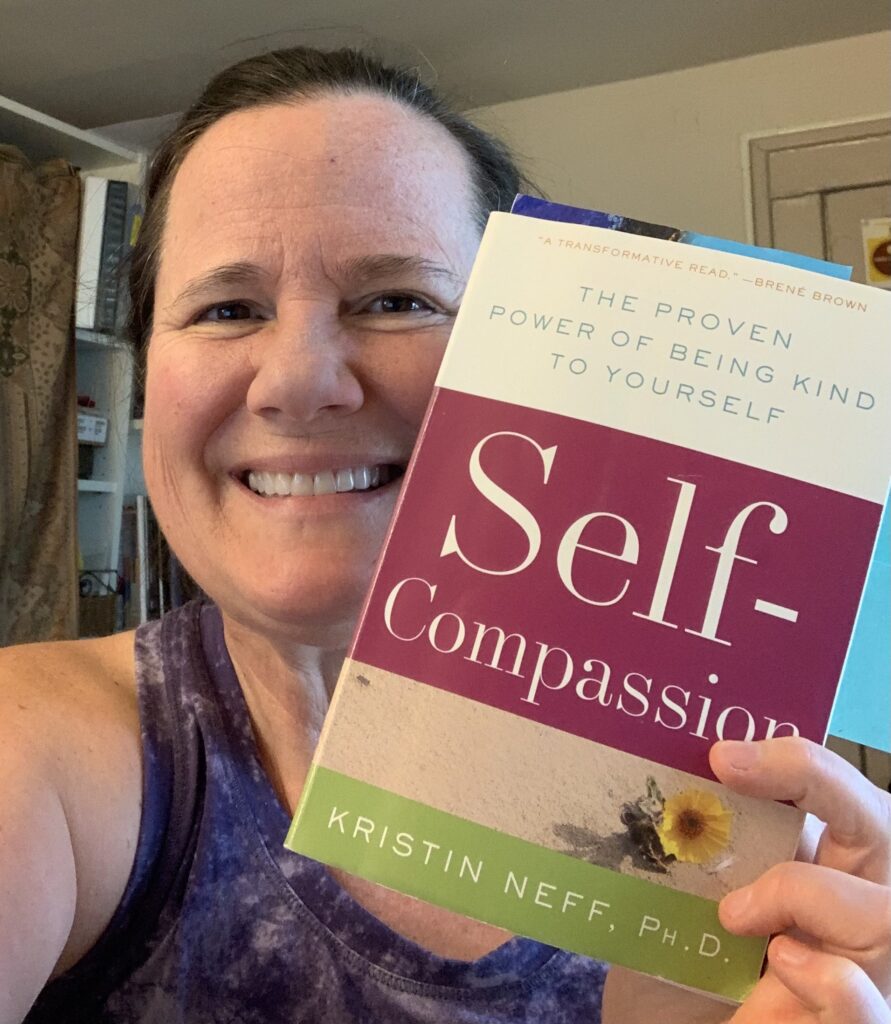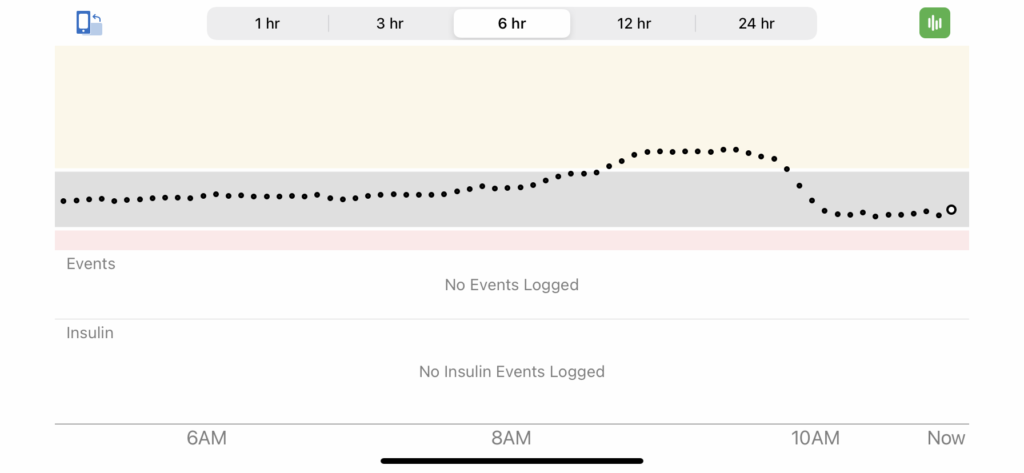“Compassion involves the recognition and clear seeing of suffering. It also involves feelings of kindness for people who are suffering, so that the desire to help – to ameliorate suffering – emerges. Finally, compassion involves recognizing our shared human condition, flawed and fragile as it is.
Self-compassion, by definition, involves the same qualities. Self-compassion involves wanting health and well-being for oneself and leads to proactive behavior to better one’s situation, rather than passivity. It means that one’s own problems are also important and worthy of being attended to.” – Kristen Neff, PhD, from her book Self-Compassion: The Proven Power of Being Kind to Yourself

When I was in the psychiatric ward the month after my suicide attempt in June 2013, the psychiatrist I was assigned to insisted on giving me a diagnosis of “massive depression.” I figured out quickly that arguing with a psychiatrist when in a locked psychiatric ward was a very bad idea.
Inaccurate diagnosis of massive depression
I acquiesced to his inaccurate diagnosis. I knew that contrary to the assumption that only people with “massive depression” attempted or successfully committed suicide, there was something else going on for me that led up to my serious suicide attempt.
I took the anti-depression medication he prescribed and I quietly continued my 3 to 6 hours a day meditation practice. Seeing the endocrinologist every few days that they assigned me (she is still to this day my current endocrinologist) in conjunction with my meditation practice, kept me as calm and sane as possible as I endured the unhelpful environment of that psychiatric ward.
9 year old realization
In the hospital, in one of my lengthy meditation sessions, I was reminded of when I was about 9 years old and I figured out, without realizing that I’d figured anything out, that the only person I could 100% rely on was myself. At 9 years old, I realized that since I couldn’t count on anyone but myself, that I ought to be as kind to myself as I could be. That was the start of my inner self-compassion journey. It has served me well. In fact, it is likely why I don’t suffer from massive depression.
Transformative book: Self-Compassion
My dear friend Jenny, who is one of the women I run, bike, swim, cross-country ski and strategize about weight lifting and overall health with, a few months ago she mentioned a life transformative book she had read a few years ago. It’s the Self-Compassion book by Kristin Neff, PhD. I felt called to order it right away. I’ve been slowly digesting it this summer, while navigating the many challenges that have come up these past few months.
Compelling stories to illustrate
What I really like about this book is that Dr. Neff backs up everything she writes about with research studies that have been done. Additionally, she tells personal, compelling, vulnerable stories from her own life to illustrate how she learned to be self-compassionate.
Reading this book made me consider how I might be a more self-compassionate endurance athlete. Here are 3 tips I’m writing for myself, to keep front of mind self-compassion as I continue my athletic journey. Since I like to share, here they are for you too!
3 tips for being a Self-Compassionate Endurance Athlete
Tip 1: Find the silver lining
Daily mindfulness reminds me every single day that there really is a silver lining to EVERYTHING. The challenge is to look deeply and examine my life events with an open mind and self caring. I make a concerted effort to reflect and examine with gentleness and love.
I’ve thought lots and lots about this concept. Being in a psychiatric ward for 30 days and becoming estranged from nearly my entire biological family, what silver lining can there possibly be in these situations?
Being in that psychiatric ward was not fun by any stretch. What I realize upon reflection is that it gave me the opportunity to meditate for 3 to 6 hours every day for many days in a row. That meditation time allowed my brain to rewire and begin to recover from the traumatic brain injury that resulted from my suicide attempt.
The medical team was not sure that I’d be able to work or live alone ever again. I believe all that meditation time was a huge gift to my healing. Having my brain recover allowed me to again take up running, biking, swimming and cross country skiing. In fact, I joined my endocrinologists triathlon team after getting out of the hospital.
That’s a silver lining.
There’s not much good about being estranged from one’s family. I often feel really sad and tossed out. Thankfully I’ve found amazing professional support from psychologists who’ve helped me examine and heal. Additionally, I’ve deepened my friendships with incredible people. Many of whom are also endurance athletes. 100% that is a silver lining!
Tip 2: Direct loving kindness toward my suffering
Loving kindness practice begins by recognizing the suffering that is happening right in this moment. The feelings of suffering are often feeling scared, angry, lonely, worthless, frustrated and so forth. These feelings will occasionally rear their head in me when I’m down on myself about my overall fitness and my diabetes management. Yes, I can be hard on myself.
The next step is to allow whatever suffering to be present. Whatever one is feeling is okay. All are welcome. Then the idea is to see if I can sense the emotion in my body. Often I can after a bit of quiet and focus. Doing this allows you and me to simply feel the emotion and minimize the thinking about the emotion or the story that goes with the emotion. Our bodies are amazing.
Then I place my hand on my heart and set the intention to offer myself kindness, understanding and compassion for the suffering I am experiencing right now. I remind myself that I am not alone in my suffering, as it is an integral part of the human experience.
Then I repeat the following phrases to myself.:
May I be safe.
May I be peaceful.
May I be kind to myself.
May I accept myself as I am.
Doing this meditation with frequency helps me be more compassionate and more kind first to myself and then to others. Often my blood sugars calm down and my frustration relaxes. Amazing how that works!

Tip 3: Remember my inherent interconnectedness
This one is especially powerful for me. I felt so alone and lonely most of my childhood that I wrongly grew up with the assumption that I somehow wasn’t connected. That I wasn’t interconnected. Most of my adult life has been a process of relearning my interconnectedness with others.
Endurance athletics has been one of my best teachers of this concept. It’s why I was so moved to create TeamWILD in 2009. I knew that doing a Half Ironman by myself wasn’t possible. I needed people around me, a group to undertake the huge challenge of a 70.3 mile swim-bike-run event.
The other day I went out for a training run and my usual running pals were all busy, it was Labor Day afterall. I was running alone. Turns out running 5 miles by myself is much harder than with a group of friends. As I was running, I remembered that I was interconnected with everyone else who was out walking and running.
Often my friends Monica and Jenny say hello to everyone we pass. I don’t usually do that. Since I was running alone, I decided to try their hello strategy. After about five smiles and hellos, I noticed that I actually felt in-my-body connected to everyone I greeted! It was amazing!!
In short, athlete or not, being self-compassionate is worth the effort.
If you’re looking for a good book, I recommend this one. Let me know how you show self-compassion to yourself. I believe in you. I feel our connection.
Thanks for reading today! I appreciate you.
Are you on my email list yet? If not, please sign up right here. I will never share your email with anyone. You’ve got my word on that.
Thanks for sharing these insights from Kristin Neff and from your own journey. Powerful and wise.
Thanks so much Linda!! I thought of you when reading this book by Kristen Neff. She’s a wise one!
What a powerful post, Mari. I really appreciate your bravery in disclosing so much of your personal journey. Also really grateful for our connections & friendship.
Thanks so much Nadine! I too am very grateful for our connection and friendship!!!